Jet2 has quietly grown into one of the UK’s biggest names in travel. While they’re best known for package holidays and budget flights, what often slips under the radar is how effectively they dominate online search. Their top spots on Google aren’t accidental – Jet2 has invested heavily in smart travel SEO, turning searches into sales with a website that’s built to convert clicks into bookings.
This isn’t about flashy gimmicks or shouting louder than the competition. It’s about understanding what people want when they search for holidays online, then meeting that need with a site that’s fast, clear and easy to use. Whether you’re a holiday brand, a local service provider, or a small e-commerce business, there’s a lot to learn from how Jet2 approach their SEO strategy.
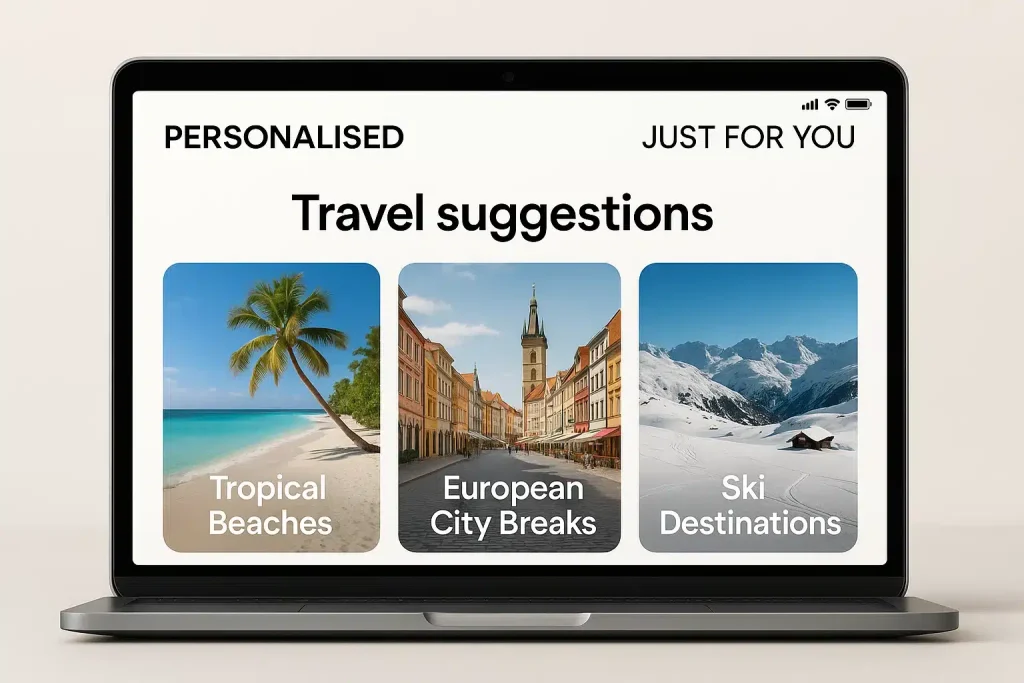
A Holiday Site That Knows What You’re Looking For
Jet2’s site doesn’t waste time. From the first click, it feels like it’s designed around you. Whether you’re after a last-minute deal, a specific destination or a school-holiday break with the kids, there’s a dedicated page for exactly that.
Each part of the site is shaped by how people search. Instead of generic content, they’ve built location pages, seasonal guides and deal roundups that closely match what users are typing into Google. This makes it more likely they’ll appear in search results for very specific holiday-related searches. That’s not just good for SEO, it’s good for the user too.
There’s also a huge benefit in how they use clear menus, filters and page layouts to help people move quickly from idea to action. No endless scrolling or guesswork, just a smooth journey from homepage to holiday booking.
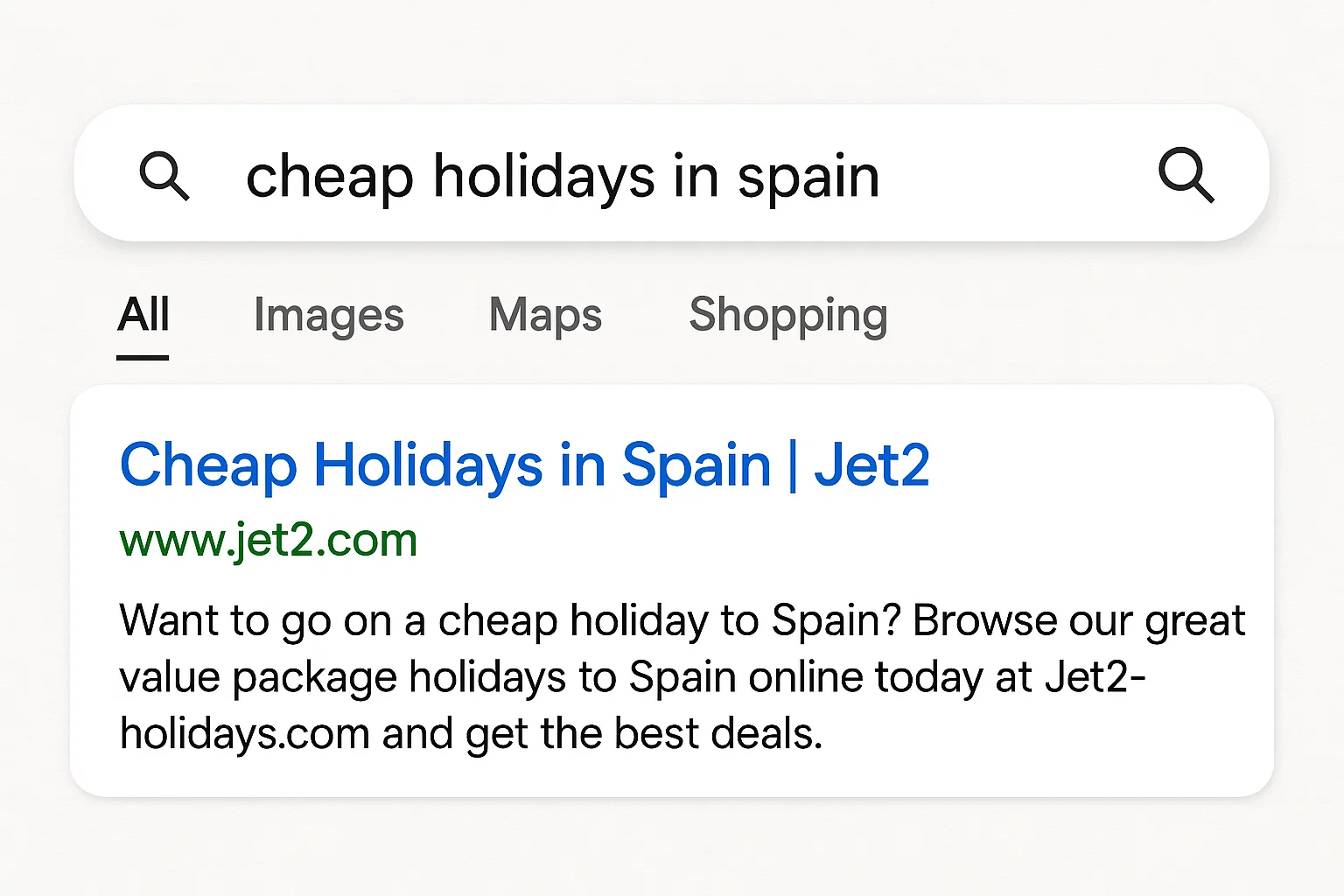
Owning the Search Terms That Matter
Jet2 appear time and time again for the big terms like “cheap holidays in Spain,” “all-inclusive family holidays,” “last minute Tenerife breaks,” and dozens of others. These keywords are fiercely competitive, yet Jet2 keep turning up.
It works because they’ve got well-structured, focused landing pages that speak directly to each of those searches. If someone’s looking for a beach break in July, Jet2 likely has a page tailored for that combination of location and timing. The content feels relevant, the images are on point and the layout makes it easy to browse deals or read more.
This isn’t about cramming in keywords or writing fluff. Jet2 earn their rankings by making pages that match what people actually want. The benefit here is clear, they pull in traffic that’s already interested in booking which makes conversions more likely.
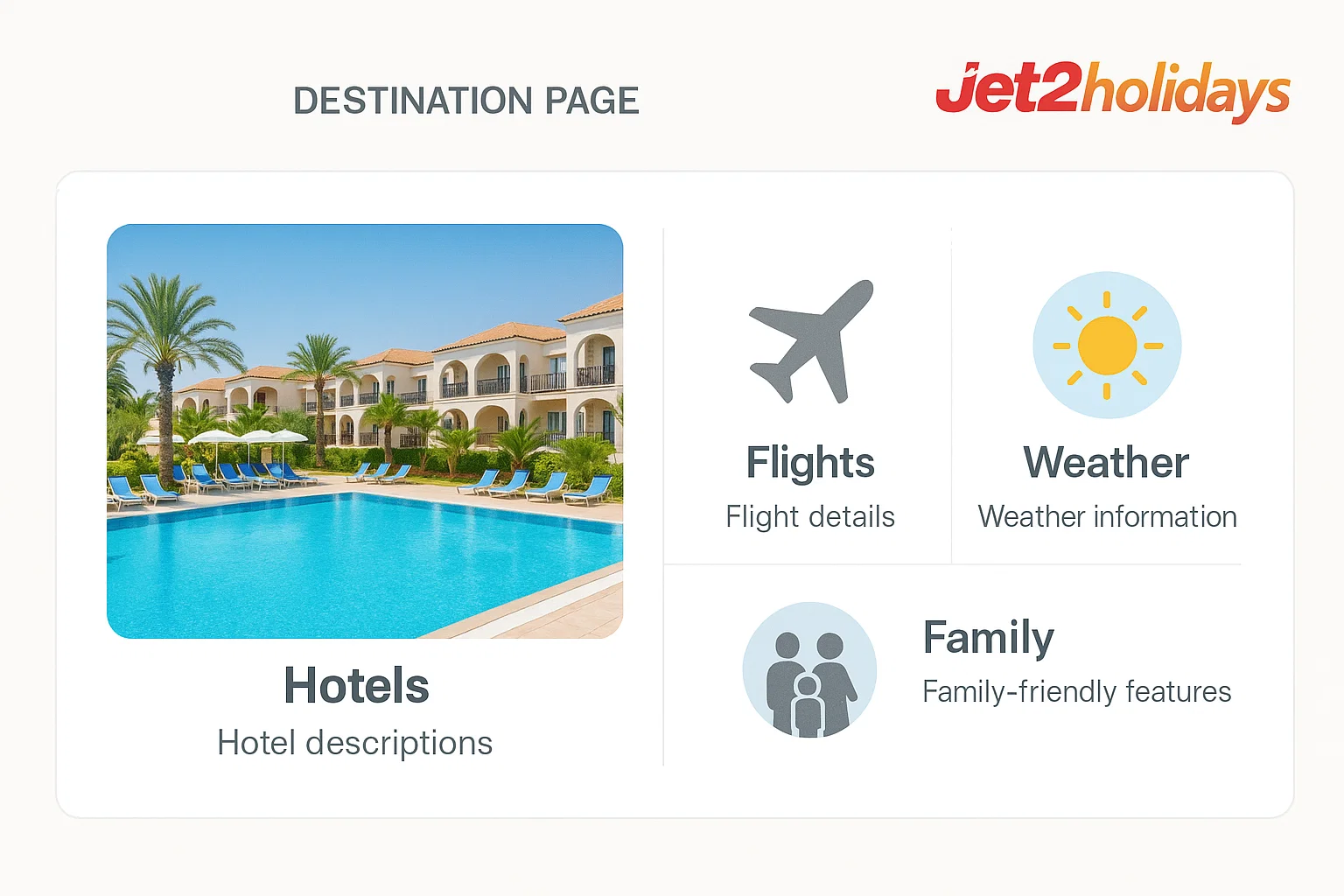
Inspiring Confidence with the Right Content
Jet2 don’t just talk about destinations – they show you what to expect, highlight key details and answer all the small questions that might stop someone from booking. Whether it’s a beachfront hotel or a city break, the page will usually include flight durations, hotel features, weather averages, family-friendly facilities and even travel tips.
There’s a feature-benefit balance at play that works really well. For example, if a hotel has a kids’ splash pool, Jet2 will point it out and explain that it’s ideal for younger families. If a destination is quieter than others, they’ll mention it’s perfect for couples or older travellers. This type of content doesn’t just fill space it helps the reader picture themselves there.
That emotional connection is what keeps people on the page. It reassures them that they’re in the right place and that Jet2 understand their needs.
You can see a similar content-led trust approach in other sectors, like our blog on Why Isn’t My Website Bringing in Customers?. When you answer questions customers didn’t even know they had, you earn their attention and trust.
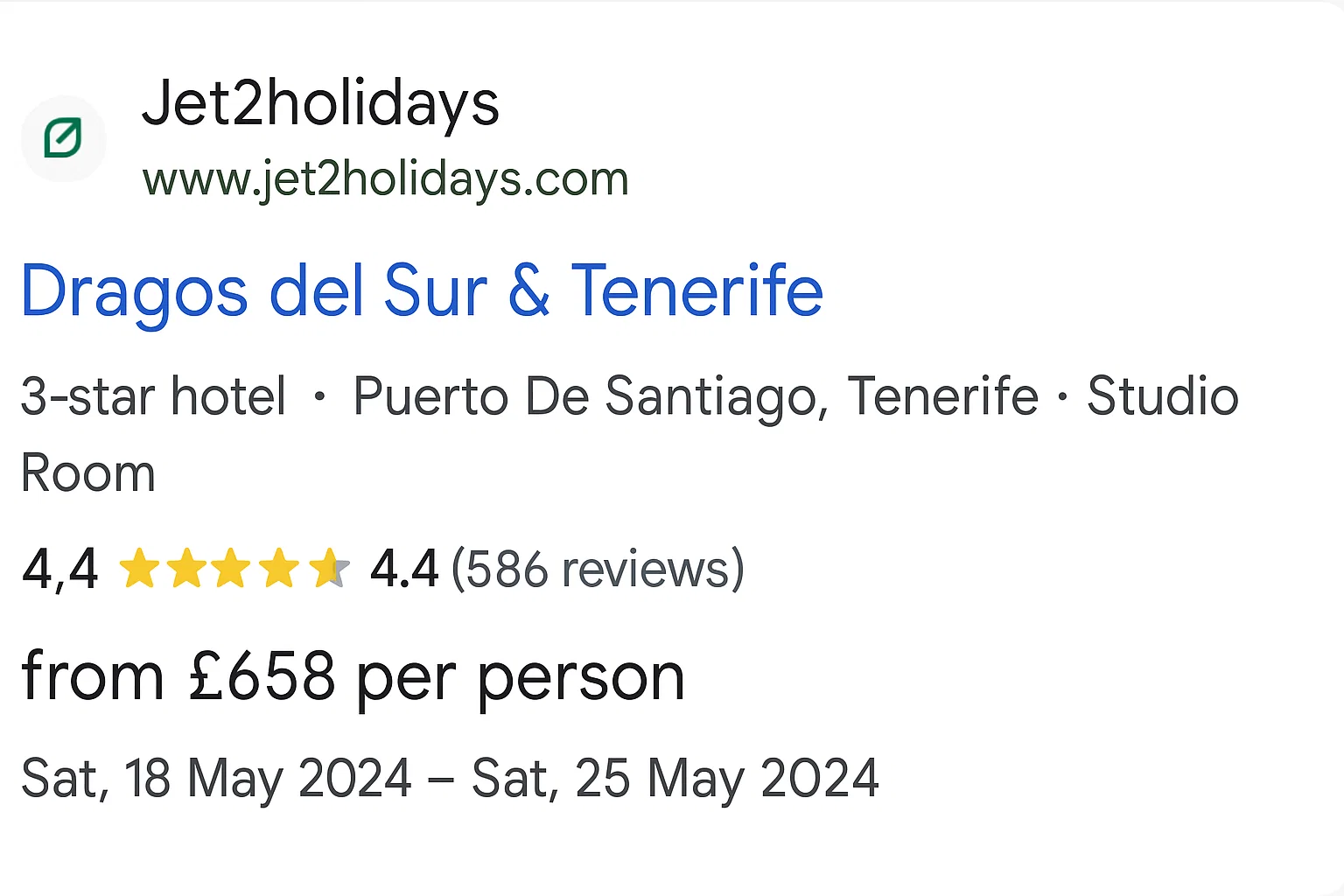
Standing Out in Search Before You Even Click
One of the clever things Jet2 do is make their listings more eye-catching in Google. When you search for a holiday, their result often includes extra details including star ratings, hotel names, review scores, prices and short FAQs.
This is down to structured data, a bit of code in the background that helps Google pull in extra info. The benefit is simple, more space on the search page and more trust before someone even clicks, often it’s a higher click-through rate.
Jet2’s use of structured data SEO gives them the upper hand in a crowded market. Even smaller businesses can do this using simple plugins or tools, the visibility boost is well worth it.
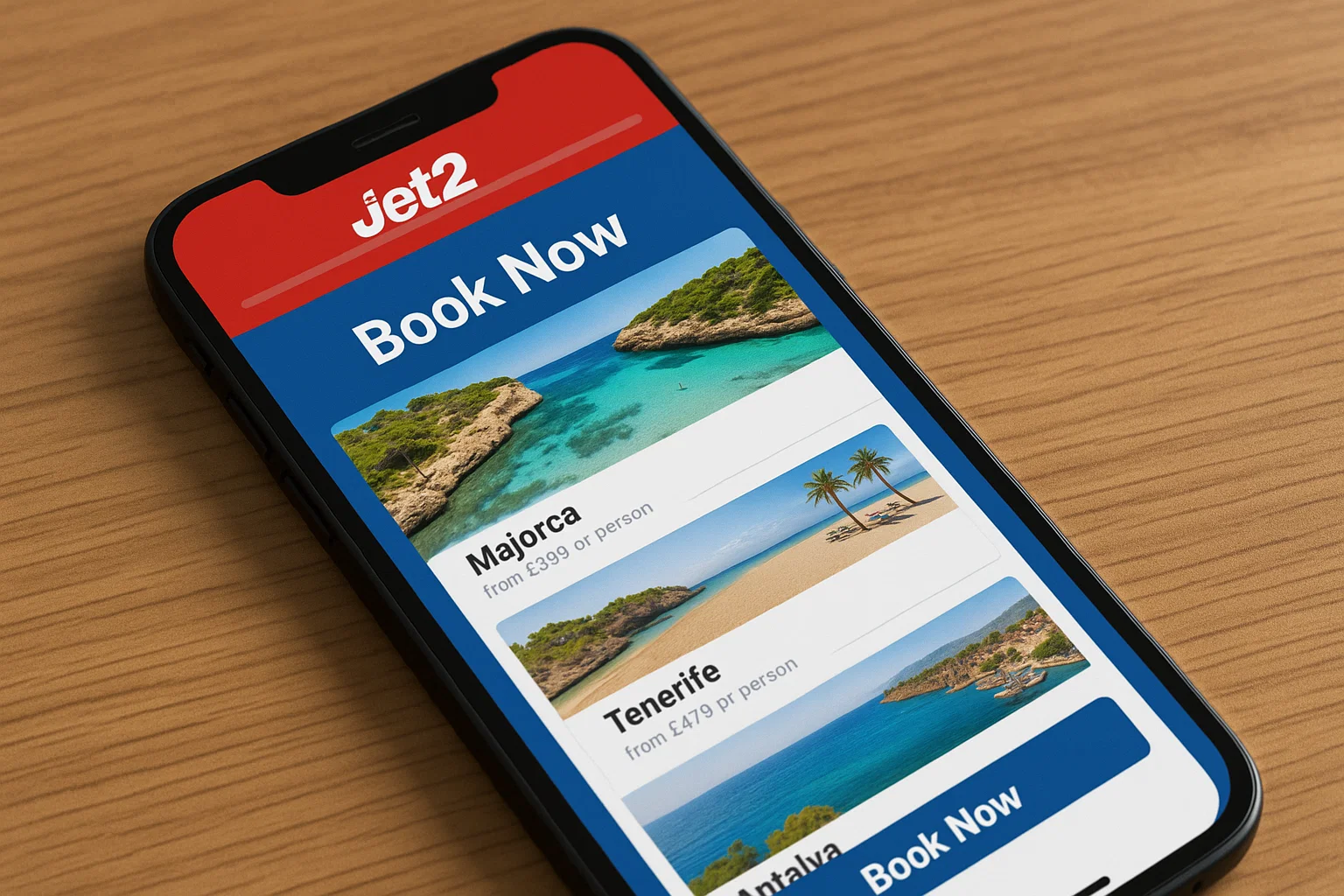
Fast, Simple and Built to Book
Jet2’s website is fast, the pages load in seconds, even with images, dynamic filters and live pricing updates. It’s just as smooth on mobile as it is on desktop. That alone gives them an edge, especially now that Google recommends building websites that prioritise speed and usability for better search rankings.
What really sets them apart is how the design supports the user journey. Everything has a purpose from the “Browse by Month” feature to the ability to filter by board type, location or travel time. Each step gently pushes the user closer to booking, without being pushy.
If you’re curious about your own options for paid marketing versus organic conversions, this is where our blog on PPC Agency – Should I Hire One Or Do It Myself? can help you weigh the difference.
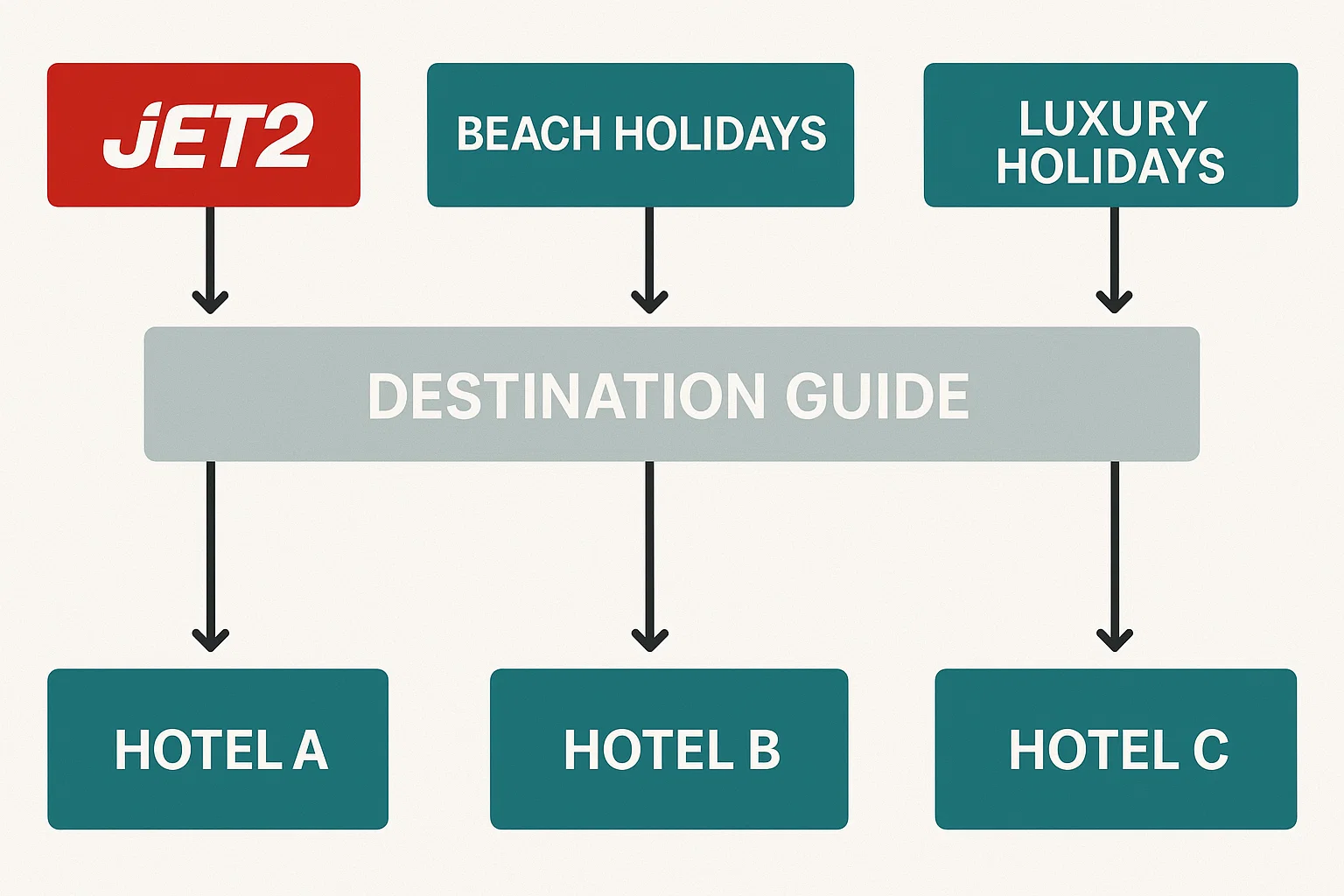
Keeping People Moving with Clever Page Linking
When someone lands on a Jet2 page about holidays in Portugal, they’re given options to explore nearby regions, different travel dates, or family vs couples’ options. Each link leads somewhere useful and each new page helps answer a slightly different question.
This internal linking strategy isn’t just good for SEO. It improves user flow, keeps bounce rates low and increases time on site, all signals that help rankings. More importantly, it gives the visitor multiple chances to find what they’re looking for, which means they’re more likely to book.
For a deeper look at how SEO unfolds over time and how site structure contributes to growth, see our blog on how long SEO takes to work.

Trust Without the Noise
Booking a holiday is a big commitment and Jet2 know how to build trust without overloading the page. Trustpilot ratings are clearly visible, you’ll often see ATOL protection badges, clear cancellation policies, and flexible payment options shown right where they’re needed.
Customer reviews are used smartly too but not as giant walls of text, but as short, relevant snippets that help visitors get a sense of what to expect. These little touches give the user the confidence to move forward without second-guessing their decision.
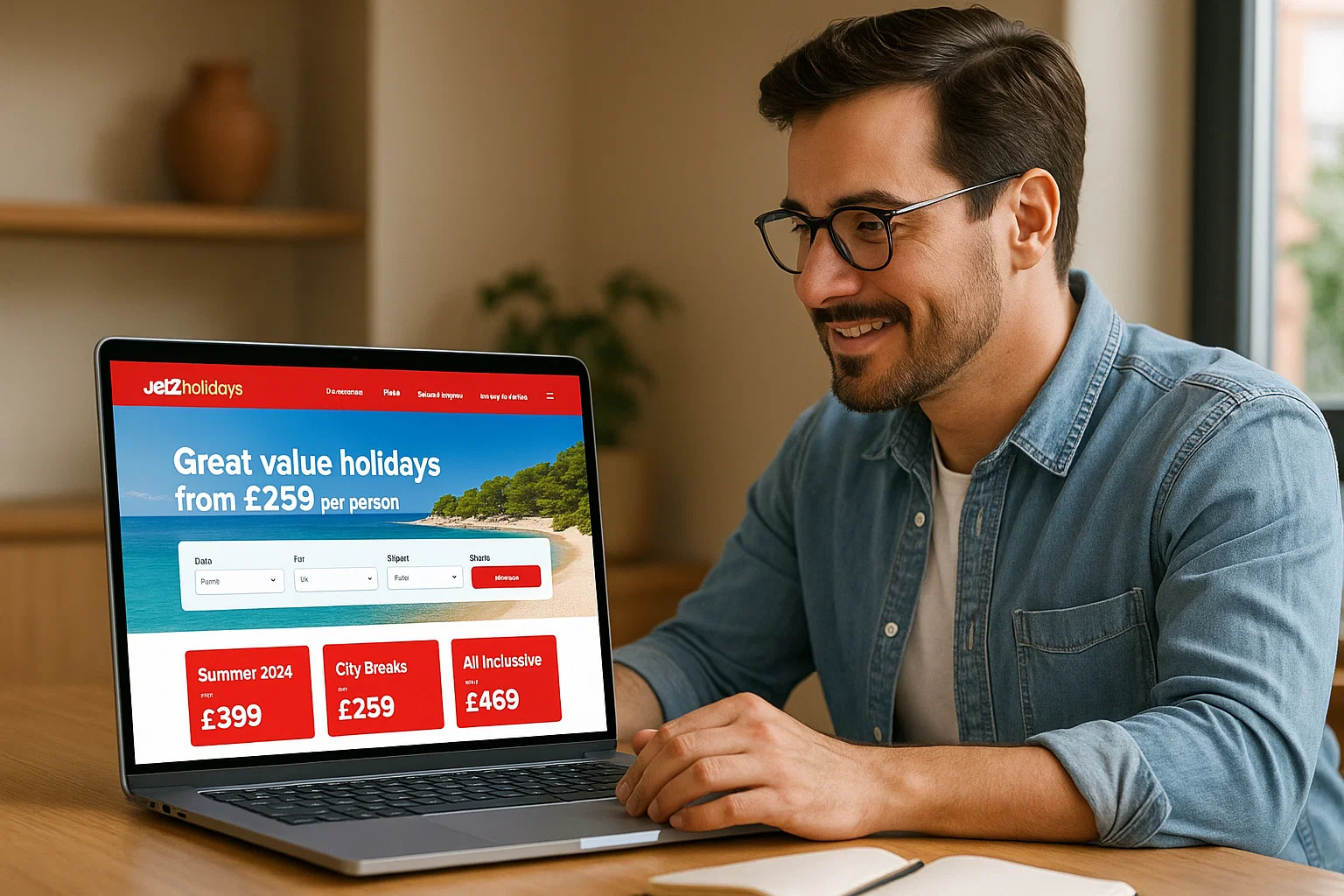
Lessons Any Business Can Use
You don’t need to be in the travel industry to benefit from Jet2’s approach. What they’ve done is build a site that’s genuinely useful, structured around real user needs and designed to convert visitors into customers.
Start by thinking about what your ideal customer is searching for. What questions are they asking? What pages on your site could be built to answer those searches more clearly? Once they land, how can you make their next step obvious and easy?
Then look at your site speed, especially on mobile. Trim the fat, simplify your layout and remove any distractions that get in the way of action. A fast, simple site doesn’t just help with SEO, it builds trust and improves sales.
If you’re aiming to follow the lead of bigger brands, there’s more on this in our breakdown of Amazon’s customer-focused marketing, which takes a similar conversion-first approach.

Where to Start If You Want the Same Results
If your website isn’t showing up in search or visitors aren’t turning into customers, the problem might not be traffic, it might be what happens after someone clicks. Jet2 get this right by focusing on what users want and removing anything that might slow them down or make them unsure.
Start small, pick one key service or product and ask yourself, does this page clearly show what’s on offer? If the answer to this is no then that’s your starting point.
For more information on this check out this helpful article from ClickThrough https://www.clickthrough-marketing.com/industry-reports/sector-insights/airlines-digital-marketing-benchmark-report-q1-2025
When your site is helpful, trustworthy and easy to use, people stick around. They click, they buy and that’s what SEO should really be about.



